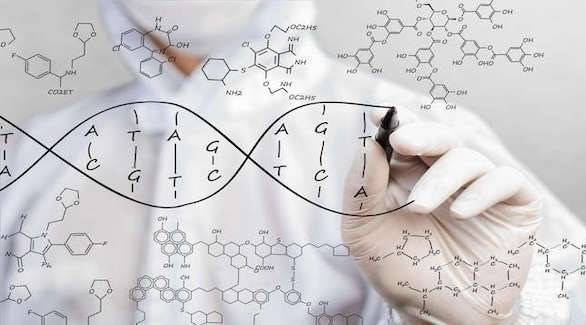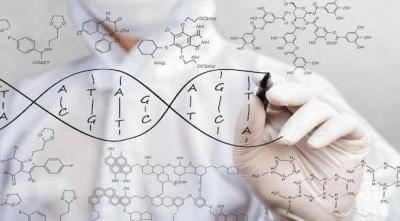DNA is a complex molecule passed down from your parents, representing the code that contains all the information about you and your ancestors. Genetic testing has reached unprecedented heights today, thanks to advancements in the medical field and the growing popularity of at-home DNA testing tools. Here are the key health insights your DNA can provide, according to "MSN":
**Risk of Alzheimer’s Disease**
DNA testing can reveal if you have a higher risk of developing Alzheimer's disease. If you possess certain variants, you will have an increased chance of developing the disease later in life. This can be tested under a physician's care or through at-home tests.
**High Fat Levels**
Genetic tests can indicate if you have a variant gene that causes familial hypercholesterolemia. This genetic mutation can cause you a specific type of high cholesterol. Some statistics suggest that one in every 500 people carries this genetic mutation.
**Risk of Celiac Disease**
Doctors may recommend genetic testing for celiac disease if other diagnostic methods are not possible. Individuals with celiac disease carry one of two genes: "HLA DQ2 and DQ8" or both.
**Risk of Cancer**
Given that there are thousands of genetic mutations that can increase cancer risk, DNA testing can help identify the likelihood of developing cancer. If there is a family history of cancer, doctors can assist in conducting the appropriate genetic tests to detect potential risks early.
**Type of Natural Treatment**
Pharmacogenomics is the science of genetic testing to identify the likelihood of success of a specific medical treatment. This science is often used for certain types of cancer to determine whether specific drugs are likely to be effective. Research is currently being conducted on drug response tests for other health conditions, such as heart disease, asthma, and HIV.
**Weight Loss Possibilities**
DNA diets can be found all over the internet, but there is currently no scientific evidence that they work. The basis of these diets is that there are some genetic components to obesity, and scientists are still trying to understand how genes play a role in weight loss.
**Caffeine Sensitivity**
Caffeine sensitivity is hereditary. If your parents are sensitive to caffeine, you may have the same condition. There are genetic variants responsible for regulating caffeine in your body, and if you did not inherit any of these variants in caffeine metabolism from your parents, you are likely unable to tolerate much coffee.
**Food Allergies**
Research is underway regarding the ability of genetic testing to provide reliable answers about food allergies. There are both genetic and environmental factors in the development of food allergies. Although food allergies often run in families, science has yet to determine food allergies through DNA testing.
**Irrational Phobias**
Estimates suggest that genes contribute to 25% to 65% of irrational phobia cases. No specific gene associated with phobias has been discovered yet, but it seems there are variants in multiple genes that predispose an individual to develop phobias.




